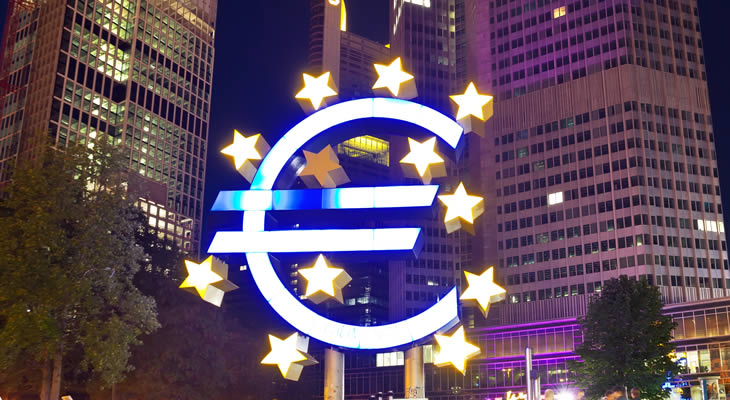The Euro to Pound Sterling (EUR/GBP) exchange rate remained in a narrow range on Tuesday ahead of Markit’s UK Construction Purchasing Managers Index (PMI).
The index is expected to decline from 57.6 to 57.0 in January and could be an event that causes Sterling to soften.
In addition, Greece is in negotiations to lessen its debt repayments and any fears of a Greek exit could pressure the Euro lower.
Earlier… The Euro to Pound Sterling (EUR/GBP) exchange rate recorded a market movement of +0.60% in the second half of Monday’s trading as the European Central Bank (ECB) announced that it purchased €3.053 billion of covered bonds in the week through January 30th.
The ECB has been attempting to expand its balance sheet and has now purchased €40.255 billion of bonds since October 20th.
Earlier… The Euro to Pound Sterling (EUR/GBP) exchange rate recorded gains during Monday’s European trading despite a fall in the final German and French Markit Manufacturing Purchasing Managers Indexes (PMI).
Italy’s final Manufacturing PMI grew from an initially forecast 48.4 to 49.9 in January while the Eurozone ecostat remained steady at 51.0. However, French figures showed a fall from the flash reading of 49.5 to 49.2 and Germany’s index slipped from the predicted 51.2 to 50.9.
Markit economist Oliver Kolodseike commented: ‘January’s PMI results paint a somewhat mixed picture of the health of the German manufacturing economy. As lower oil prices are starting to feed through from the factory gate to the consumer, we should hopefully see an uplift in economic growth in coming months.’
The slowdown in the Eurozone economy has justified the ECB’s decision to undertake a period of quantitative easing (QE). The QE stimulus program is expected to begin in March and continue until September 2016.
Markit chief economist Chris Williamson stated: ‘Eurozone manufacturing showed signs of pulling out of the doldrums at the start of the year, but the rate of expansion remained disappointingly meagre, vindicating the ECB’s decision to take drastic action.’
UK Markit Manufacturing Climbs Above Forecast
However, the Euro to Pound Sterling (EUR/GBP) exchange rate may take a hit after the release of UK Markit Manufacturing ecostats. The index rose from 52.5 to 53.0, a shade higher than the 52.7 forecast.
The UK is thought to be undergoing a slowdown, therefore the favourable manufacturing ecostat could offer the Pound Sterling to Euro (GBP/EUR) exchange rate some support.
Markit stated: ‘UK manufacturing started 2015 on a firmer footing, as growth of output and new orders ticked higher following the slowdown seen through much of the latter half of 2014.’
‘The big mover during January was the trend in purchasing costs, as the recent slump in oil prices fed through to the steepest drop in input costs since May 2009.’
Euro to Pound Sterling (EUR/GBP) Exchange Rate Forecast
The Euro to Pound Sterling (EUR/GBP) exchange rate could fluctuate later in Monday’s session as European Central Bank official Ewald Nowotny speaks on monetary policy. Any hawkish remarks on the subject could see the Euro climb.
However, some industry experts have suggested that the QE program will be ‘too little, too late’.
Expert Bill Gross commented: ‘Draghi had no choice [with regards to QE] but it comes far too late. That will become his problem. I don’t think QE will work as well in Europe as it did in the US. There are only a limited amount of securities to buy and interest rates are now so low that it’s not necessarily the case that [banks will use] the money to invest in the real economy. I do wonder if much good can come of it.’
Tuesday will see the release of UK Construction PMI data as well as the Eurozone’s Producer Price Index.
The Euro to Pound Sterling (EUR/GBP) exchange rate is trending in the region of 0.7513. The Pound Sterling to Euro (GBP/EUR) exchange rate resides at 1.3314.

